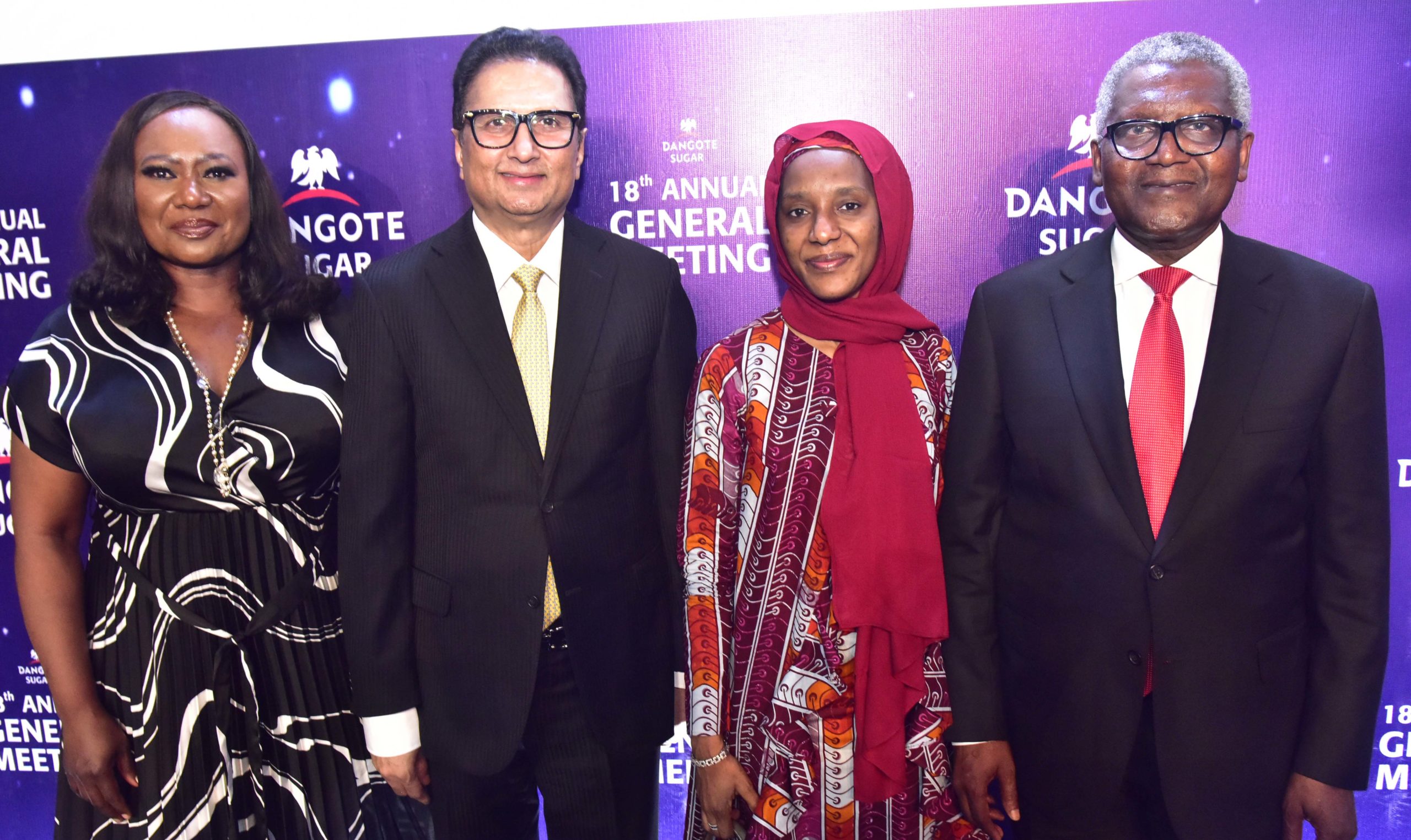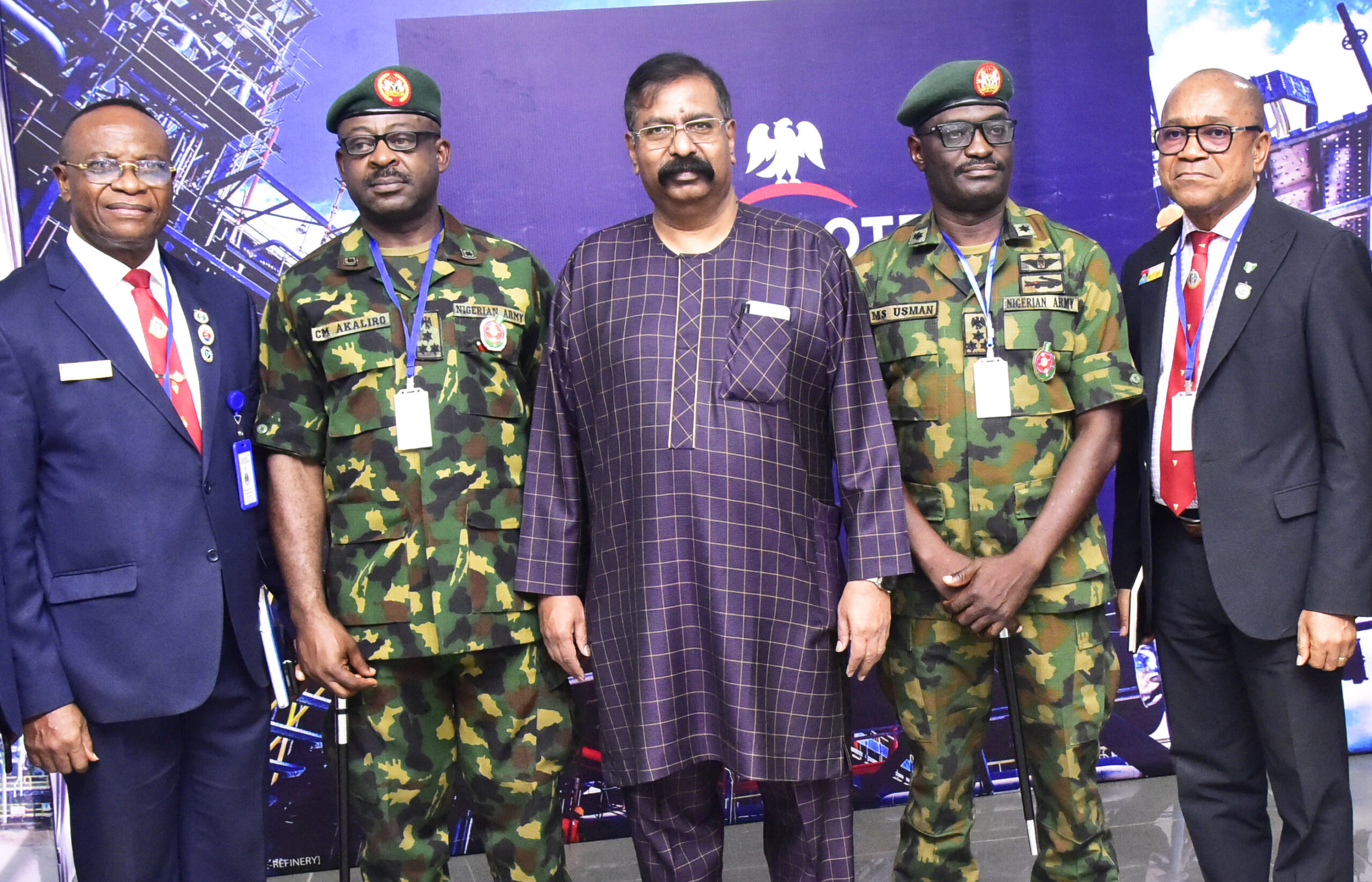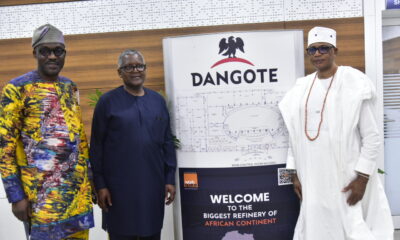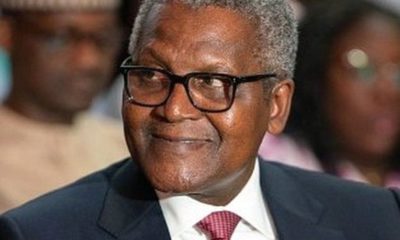Business
Backward Integration: Dangote Targets 700,000MT Of Refined Sugar In Four Years

. . . As Q1 Revenue Rise By 20.1% To N122.7bn
The Dangote Sugar Refinery Plc (DSR) has unveiled plans to produce 700,000 metric tonnes of refined sugar from locally grown sugarcane in the next four years, through its Backward Integration Programme (BIP).
Chairman, DSR, Aliko Dangote made the disclosure at the company’s 18th Annual General Meeting (AGM) on Tuesday, in Lagos.
The AGM coincided with the Nigerian Exchange (NGX) releasing the company’s first-quarter result for 2024, which indicated an increase of 20.1 percent in its revenue to N122.7 billion.
According to Dangote, in alignment with the Federal Government of Nigeria’s policy guidelines, DSR continues to focus on and enhance its Backward Integration Project (BIP) by deploying and reviewing project strategies to ensure efficient delivery.
He noted that the 700,000 metric tonnes would meet 50 percent of the current market demand for refined sugar.
He added that the 10-year sugar development plan to produce 1.5 million MT of sugar per annum from locally grown sugarcane remains a germane roadmap to the attainment of the company’s objectives.
He said, “Our focus is on achieving the revised targets set for DSR Numan Operations, Dangote Adamawa Sugar Limited, and Nasarawa Sugar Company Limited, while we are hopeful that the Taraba State Government will resolve the community payment issues that have led to the stoppage of activities at the Dangote Taraba Sugar Limited, Lau/Tau project.”
Dangote pointed out that “…During the year under review, despite the challenges we were faced with, the company significantly scaled up investment in the Backward Integration Projects with the ongoing expansion of the DSR Numan factory refining capacity from 3,000TCD to 9,800TCD year-end.
“The factory will be increased with an additional 5,200TCD to 15,000 TCD (tonnes of cane crushed per day) eventually to meet the need in view of the massive land development activities also going on at the site. The aim is to achieve 24,200 hectares in total by the year 2029.”
He also emphasised that despite the adverse impact on the business environment by the continuous increase in the inflationary trend, lack of liquidity and FX to fund the company’s equipment import among others for the backward integration projects, concerted efforts are ongoing to secure the needed funds for the development of the Nasarawa Sugar Company Limited project at Tunga in Awe Local Government Area of the state.
“This will enable the company to put in place the needed infrastructure for the eventual commencement of full-scale production and ensure that the Dangote Sugar Backward Integration ‘Sugar for Nigeria Project’ is achieved. In the end, over $700 million investment would be committed to the Backward Integration Programme,” he added.
Dangote said that the Dangote Sugar (Ghana) Limited, was established as a subsidiary of the Company during the year under review, in line with the plan to expand its presence in the sugar industry across Africa.
On outlook, he stated that “achievement of the goals of the Sugar Backward Integration Master Plan remains our focus. This will go a long way in delivering the anticipated benefits, especially in FX savings and cushioning its impact on our operations amongst other benefits to the company, all stakeholders, and the nation.”
Group Managing Director/CEO, Dangote Sugar, Ravindra Singhvi said, “Despite these challenges, we are resolute and focused on the delivery of our business targets in the medium to long term.”
He pointed out that “as we continue to navigate through the scarcity and high cost of foreign exchange, escalating costs of raw materials amongst others, our focus is to enhance the effectiveness of our supply chain processes, optimise cost, improve our operational efficiencies and delivery on our Sugar for Nigeria backward integration project.”
In addition, Singhvi pointed out that, “the target is to produce a minimum of 1.5MT refined sugar annually from locally produced sugarcane at our integrated sugar production estates, which is expected to alleviate some pressure on costs and our demand for foreign currency.
“Achievement of a sustainable business remains one of our key strategies and concerted efforts were made towards sustaining the achievements we have recorded in the past.”
Business
Savannah Energy Provides Unaudited FY 2024 Trading Updates

Savannah Energy has shared a trading update on its Nigerian operations and other markets in Africa, including up-to-date cash collections in its Nigerian business.
According to the update, made available on Thursday in Lagos, its gross production in Nigeria averaged 23.1 Kboepd for FY 2024, broadly in line with the prior year’s 23.6 Kboepd, of which 88% was gas (FY 2023: 91%).
On the update, CEO of Savannah Energy, Andrew Knott, said, “I am pleased to provide a FY trading update which demonstrates the continued progress we have made in 2024, a year which saw the highest level of cash collections ever recorded by our Nigerian business. 2025 is expected to be an exciting year for our Company: we have a large planned operational programme in Nigeria which is anticipated to enhance both our oil and gas production levels and capacity; we intend to progress our R3 East oil development project in Niger; we continue to pursue key acquisitions in the upstream oil and gas space; and we continue to seek to build our power business.
“Fundamentally, Savannah remains unequivocally an “AND” company, seeking to deliver strong performance both for the short AND long term across multiple fronts, and pursuing growth opportunities in both the hydrocarbon AND power sectors.”
The update It also shows that it generated a Total Income of US$393.6 million in 2024, compared to FY 2023’s US$289.8 million. This consists of Total Revenues of US$258.7 million and Other operating income of US$134.9 million.
The report also shows that Savannah’s FY 2024 Total Revenues were ahead of the previously issued financial guidance of greater than US$245 million, while FY 2024 financial guidance is reiterated for Operating expenses plus administrative expenses at ‘up to US$75 million’. The company expects its FY 2024 capital expenditure to come in lower than planned (previously guided at ‘up to US$50 million’) due to the phasing of spend.
ALSO READ: CSR: Dangote Awards Scholarships To 473 Students
According to the update, Savannah’s cash collections in 2024 amounted to US$248.5 million, a slight increase from the US$206 million it received in 2023. The report further shows that its cash balances as at 31 December 2024 stood at US$32.6 million, compared to the 31 December 2023 figure of US$107.0 million.
The report shows that the company’s midstream subsidiary, Accugas Limited, had as at 31 December 2024 drawn down on its NGN332 billion of the NGN Transitional Facility, with the resulting funds being converted to US$, which, along with cash held, was used to partially prepay the existing Accugas US$ Facility, leaving a balance as at 31 December 2024 of approximately US$212.3 million.
The report also provided new updates on Accugas’ US$45 million Uquo Central Processing Facility (“Uquo CPF”) compression project in Nigeria, noting that its commissioning which will enable the expansion of gas production in the medium term is well underway.
The report highlighted the progress being made in the procurement process of long lead equipment in Nigeria for a potential two-well drilling campaign on the Uquo Field in H2 2025, with an additional gas development well expected to add up to 80 MMscfpd of supplemental production capacity and a potential exploration well targeting an Unrisked Gross gas initially in place (“GIIP”) of 154 Bscf (25.7 MMboe) of incremental gas resources.
The update shows that progress is also being made in the planned Savannah acquisition of Sinopec International Petroleum Exploration and Production Company Nigeria Limited, whose principal asset is a 49% non-operated interest in the Stubb Creek oil and gas field (“Stubb Creek”), with regulatory approval and completion being targeted in Q1 2025. Following the completion of the acquisition, Savannah intends to commence an expansion programme which is anticipated to increase Stubb Creek gross production from an average of 2.7 Kbopd in 2024 to approximately 4.7 Kbopd.
In Niger, Savannah continues to seek to progress its 35 MMstb (Gross 2C Resources) R3 East oil development in South-East Niger, while it continues to push for a potential alternative transaction structure to acquire a material stake in producing oil and gas assets in South Sudan as previously announced on 20 December 2024.
On the renewable energy front, the update shows that Savannah has up to 696 MW of renewable energy projects currently in motion, including the up to 250 MW Parc Eolien de la Tarka wind farm project in Niger and the up to 95 MW Bini a Warak hybrid hydroelectric and solar project in Cameroon. A firm believer in Africa’s transition to renewable energy, Savannah continues to target a portfolio of up to 2 GW+ of power projects in motion by the end of 2026.
Business
Nigeria Can Achieve 5.5% GDP Growth – NESG
The Nigerian Economic Summit Group (NESG) has projected that the country has the potential to achieve a 5.5% growth in Gross Domestic Product (GDP) if critical policy reforms are sustained.
This was disclosed on Thursday during the launch of the NESG’s 2025 Macroeconomic Outlook report.
Speaking at the event, the Chief Economist and Director of Research & Development at NESG, Dr. Olusegun Omisakin, highlighted the need for more efficient policy implementation to unlock Nigeria’s economic potential.
READ MORE: Davido Is Richer Than His Billionaire Father – Ibrahim Chatta Claims
“We believe at the optimal level, if we embark on more efficient policy reforms, the Nigerian economy has the potential, the GDP to end up at 5.5 per cent, and we believe that this is achievable,” Omisakin stated.
More to follow……….
Business
CBN Approves Release Of Nigerian FX Code
The Central Bank of Nigeria (CBN) has announced the release of the Nigerian Foreign Exchange (FX) Code, a set of guidelines designed to promote ethical conduct among authorized dealers in the country’s FX market.
In a statement, the apex bank disclosed that the official launch of the Code would take place on Tuesday, January 28, 2025, at the CBN Head Office Auditorium in Abuja.
READ MORE: Dangote Denies Culpability In Pumping Up Petrol Price
“The Central Bank of Nigeria has approved the release of the Nigerian Foreign Exchange (FX) Code as a guideline to the banking industry to promote the ethical conduct of authorised dealers in the Nigerian Foreign Exchange Market,” the statement read.
The introduction of the FX Code is expected to enhance transparency, accountability, and professionalism within Nigeria’s foreign exchange ecosystem, aligning it with global best practices.
The event is anticipated to attract key stakeholders in the financial and banking sectors, as well as representatives from authorized FX-dealing institutions across the country.




















